We get it. You’re busy. You’ve got a growing business in Kenya, and you need staff uniforms—fast.
So you call us, House of Workwear – a trusted manufacturer of workwear in Kenya, and you ask the simplest question:
“How much is a chef jacket?”
And we give you the frustratingly vague answer: “It depends.”
Please believe us when we say this isn’t a tactic. It’s simply the reality of our craft as a leading workwear supplier in Nairobi.
Uniforms are functional. For instance, a hotel housekeeping uniform might need soft, breathable fabric to keep staff comfortable during long shifts. A mechanic’s overall, on the other hand, needs tough material that can handle grease, heat, and heavy wear.
Here are 9 factors that determine the cost of staff uniforms in Kenya, and why “cheap” doesn’t always mean “affordable.”
1. Fabric: The Heart of Every Uniform
Fabric is the foundation of every uniform. It determines how your corporate uniforms in Kenya look, feel, and how long they’ll last. When a competitor offers a drastically lower price for the “same” item, they almost always cut corners on the fabric. This is the single biggest determinant of quality, comfort, and the uniform’s lifespan.
- The cotton illusion – Most Kenyans often demand, “I want cotton.” Well, in most cases, pure cotton is definitely NOT what you need. Pure cotton is comfortable and breathable, but it wrinkles easily, fades fast, and tears relatively quickly under heavy use.
- The infamous polyester – affordable and wrinkle-resistant, but lacks breathability and can trap heat and odor. Tetrex is such an example.
- Weight (GSM) factor – GSM stands for Grams per Square Meter. A lower price often means lower GSM—a very thin, light fabric that might feel okay initially but will tear, snag, and fade after just a few industrial washes. The right GSM ensures the uniform holds its professional shape for longer.
- Poly-Cotton Blends – These fabrics blend polyester and cotton. A most common mix is 65% polyester and 35% Cotton. Depending on the mix and yarn quality, these fabrics can be durable, breathable, and great for everyday professional staff uniforms. Examples include twill and drill, but they come in many variations. Some are imported while others are locally manufactured here in Kenya.
- Color fastness – Color fastness is the measure of how well a fabric holds its original color amidst exposure to external factors like light, water, rubbing, and chemicals. Fabrics dyed at yarn level often hold their original color longer than those dyed at woven state.
- Shade consistency – Shade consistency is how different the shades of the same fabric change from one lot to the next. While some fabrics remain fairly consistent from one factory lot to the next, others exhibit glaring shade differences.
2. Design and Stitching: The Craft Behind the Look
A uniform’s design is much more than how it looks. It’s about how it’s built. A simple dust coat, for example, will cost less than a double-stitched chef’s jacket with contrast piping and a pen pocket. The more detailed the stitching and pattern, the more labor and time it takes to produce — and that shows in the price.
At House of Workwear, your trusted workwear supplier in Nairobi, we pay attention to things like:
- Reinforced seams for durability
- Double stitching in high-stress areas
- Neat finishing on collars and cuffs
- Special trims, panels, or contrast colors
These are the little things that make your Kenya staff uniforms look professional and last longer.
3. Branding and Personalization
When customers walk into your business, your staff uniforms say a lot before anyone even speaks. Your logo is the face of your company. How it’s applied, however, whether embroidery, screen printing, or direct transfer, affects the price, durability, and prestige of the branding on your uniform.
4. Size, Fit, and Staff Diversity
Not every team is built the same — and neither are their uniforms. When you order workwear in Nairobi in bulk, uniform sizing plays a big role. Bigger sizes use more fabric, and fitted uniforms may need extra cutting or stitching work. Gender-specific designs (like skirts or tailored shirts) also add complexity.
This is why we always recommend providing size ranges or allowing time for fitting. It helps ensure comfort, and it allows us to price fairly based on what’s really needed.
5. Add-ons and Functional Accessories
Sometimes, it’s the small additions that vary the price of workwear in Kenya. Here are some common extras that can affect cost:
- Zippers and button quality – metal zips cost more but last longer.
- Reflective strips – essential for security or roadside workers.
- Extra pockets, loops, or tabs – handy but add more stitching time.
- Lining or waterproofing – for warmth or outdoor work.
Each of these makes the uniform more functional, but also adds to the materials and labor involved.
6. Quantity and Bulk Orders
Larger orders for staff uniforms in Kenya usually bring the unit price down. If you need 500 pieces instead of 50, our team can negotiate better rates for raw fabric and accessories, and our machinery runs more efficiently. The fixed costs (like pattern development) are spread over more units, lowering the price per item. And those are savings that we can pass on to you.
7. Urgency and Production Timelines
We understand that sometimes you need uniforms urgently in Nairobi — maybe you’re opening a new branch or preparing for an inspection. However, urgent orders usually require us to adjust production schedules, pay overtime, or fast-track fabric sourcing. That can slightly raise the overall cost. Whenever possible, we encourage clients to plan ahead — it keeps prices lower and ensures the best quality finish.
8. Finishing and Delivery
Once the sewing is done, workwear still goes through ironing, folding, packaging, and delivery. While these may seem like small details, they require time and materials — and that’s part of what shapes the total cost.
9. Quality Standards and Compliance
In some industries, workwear must meet specific standards. Reflective wear for guards, flame-resistant coats for welders, or anti-static garments for electrical technicians — all require certified fabrics and specialized stitching. Those standards add to the cost, but they’re crucial for safety and compliance with Kenyan labour and occupational safety laws.
Why “Cheap” Isn’t Always the Best Deal
It’s natural to compare quotes — but it’s also important to compare what’s behind those quotes for corporate uniforms in Kenya.
One workwear supplier might seem cheaper, but they could be using a lighter fabric or skipping reinforcement in the stitching. Another might use high-quality material that lasts twice as long. In the end, paying slightly more for better workmanship often saves you money on replacements and repairs.
At House of Workwear, the premier uniforms and workwear supplier in Nairobi, we always tell clients: “You’re not just buying a uniform — you’re investing in your brand’s image and your staff’s comfort.”
The Bottom Line
Staff uniform pricing isn’t about throwing numbers around. It’s about understanding the materials, design, and craftsmanship that go into every piece.
When you ask for a quote, think beyond the price tag. Ask questions like:
- What type of fabric are you using?
- Are the seams double-stitched?
- Is the logo embroidered or printed?
- How long will these uniforms last?
- How fast will the uniforms fade?
The answers will help you see the difference between a cheap uniform and a well-made one.
At House of Workwear, your reliable manufacturer of workwear in Kenya, we believe in transparency, fair pricing, and value that lasts. Whether it’s for a hotel, a school, a factory, or a hospital, we’ll walk you through every detail — so you know exactly what you’re paying for, and why.
Still, we know Kenyans just want us to answer the question, “How much is a Chef Jacket?”
Okay! Okay! In the table below is a range of prices of the common staff uniforms and workwear often stitched at House of Workwear. The prices are net of VAT.
| ...Item Description | Prices Range [From] | [To] | |
|---|---|---|---|
| Tops - These include Chef Jackets, Shirts, Blouses, Polo T-Shirts | Ksh 1,000.00 | Ksh 2,200.00 | |
| Trousers | Ksh 1,200.00 | Ksh 2,500.00 | |
| Corporate Suits | Ksh 6,000.00 | Ksh 12,000.00 | |
| Half Coats, Waist Coats | Ksh 750.00 | Ksh 2,000.00 | |
| Half Aprons, Round Neck T-Shirts | Ksh 500.00 | Ksh 1,000.00 | |
| Full Aprons | Ksh 750.00 | Ksh 1,500.00 | |
| Waterproof Aprons | Ksh 1,000.00 | Ksh 1,500.00 | |
| Full Overalls, Broken Overalls [Jacket & Cargo Pants] | Ksh 1,500.00 | Ksh 4,500.00 | |
| Security Sweaters | Ksh 1,300.00 | Ksh 2,000.00 | |
| Raincoats | Ksh 1,200.00 | Ksh 3,000.00 | |
| Reflective Vests | Ksh 400.00 | Ksh 1,000.00 | |
| Bomba Jackets | Ksh 2,500.00 | Ksh 4,000.00 | |
| Lab Coats | Ksh 1,000.00 | Ksh 2,000.00 |

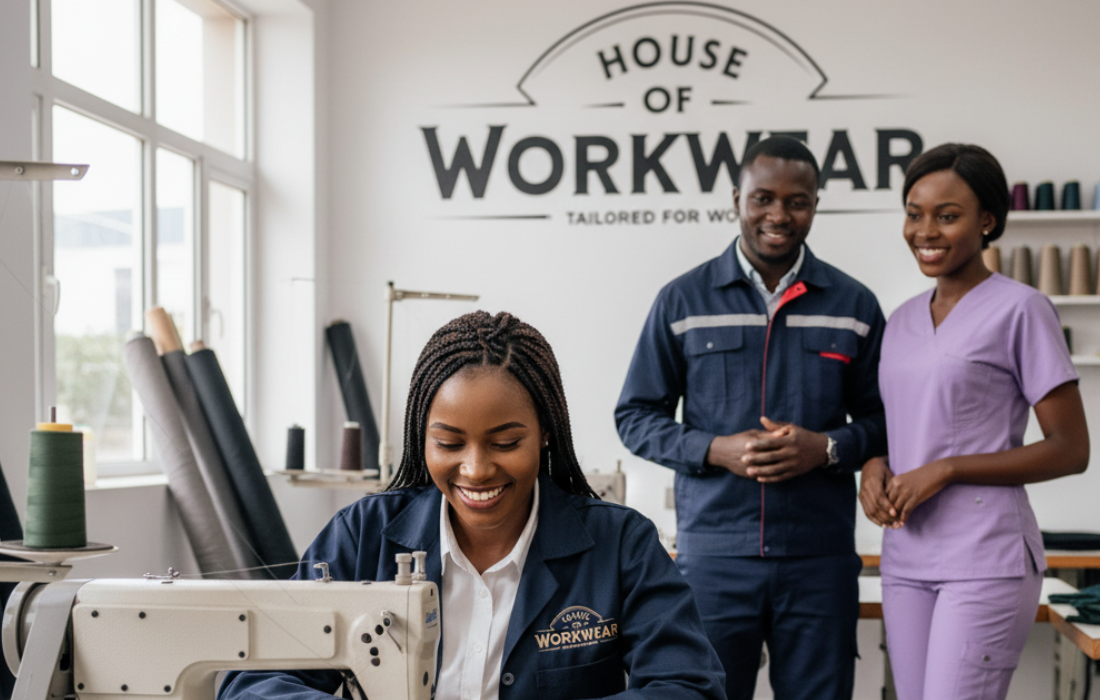


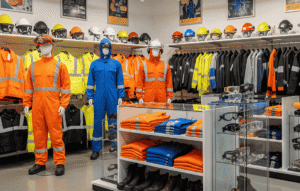

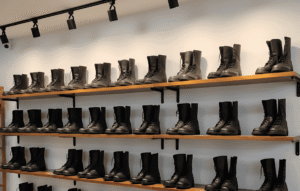
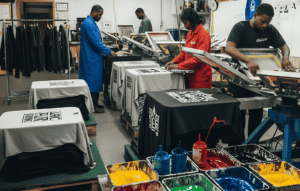

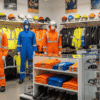

Add comment
You must be logged in to post a comment.